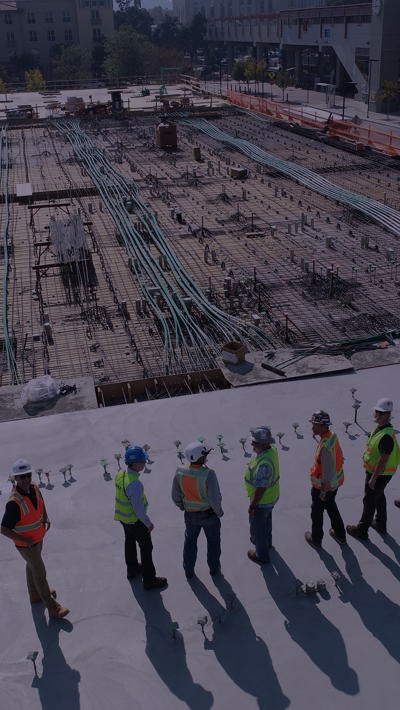Contents
Standards New Zealand has released a revised version of NZS3910:2013 (NZS3910) for public consultation, which closes on 30 June 2023.
NZS3910 is the most commonly used build-only standard form construction contract in the New Zealand market. Since the last version was released in 2013, changes in market practice, global and domestic conditions, attitudes towards risk allocation and legislative reform, meant it was necessary to undertake a comprehensive review of the NZS3910 template.
The New Zealand Infrastructure Commission, Te Waihanga and the Construction Sector Accord jointly commissioned Standards New Zealand to lead and manage the review, with a committee of representatives from across the sector.
We summarise the key changes proposed to NZS3910 below:
- Addition of new “target price” contract price option: The last version of NZS3910 provided three options for structuring contract price – lump sum, measure and value, and cost reimbursement. The discussion draft introduces a fourth option of “target price” in which the parties share the benefit of savings or burden of overruns where the actual price comes in below or above the target price, in accordance with pre-agreed percentages.
- Engineer to the Contract replaced with Contract Administrator and Independent Certifier: Under NZS3910, the Engineer to the Contract has historically been required to ‘wear two hats’, acting as the Principal’s agent for the purpose of instructing work and issuing payment schedules, and independent of both parties for the purpose of making determinations in disputes and issuing certificates. Many in the industry have complained that the Engineer cannot fulfil both roles effectively and may be biased towards the Principal when determining disputes. The discussion draft replaces the Engineer’s dual role with two separate roles of Contract Administrator (who acts as the Principal’s agent) and Independent Certifier (who is independent of the parties when making determinations and issuing certificates).
- Management plans and reporting: The last version of NZS3910 required the Contractor to prepare a range of different plans (including a quality plan, traffic management plan and site-specific safety plan). The discussion document only requires preparation of the site-specific safety plan, with any other plans to be specified by the parties in the Specific Conditions. A new clause has also been added requiring the Contractor to regularly report on matters recorded in the Specific Conditions.
- Environmental protection: A new clause has been added to the discussion draft, requiring the Contractor to take all reasonably practicable steps to ensure that no act or omission:
- Discharges contaminants into the environment, exceeds boundary noise levels or causes an adverse effect on the environment;
- Is in breach of any relevant law or consent;
- Would give rise to the issue of an abatement notice, enforcement proceeding, excessive noise directions or an RMA prosecution;
- Endangers or compromises a consent or is inconsistent with the principal or contractor being able to comply with a consent.
- Contractor’s liability: As signalled by Standards New Zealand in October 2022, the discussion draft includes amendments to clause 7 to:
- Narrow the scope of the Contractor’s indemnity in favour of the Principal (essentially removing the previous ‘no fault’ indemnity); and
- Introduce a cap on the Contractor’s liability (new clause 7.2). The parties are to record the level of the cap in the Special Conditions. The liability cap includes a number of exclusions – including in relation to third party liability under clause 7.1.1(b), abandonment by the Contractor, fraud, illegal acts or omissions, wilful or reckless misconduct and wilful default.
- “Final Account”: The discussion draft introduces the concept of a “Final Account” and “Interim Final Account” to be prepared by the Contractor and served on the Independent Certifier within the timeframe specified in the Specific Conditions. This will set out the Contract Price, together with all variation claims and other adjustments to the Contract Price which the Contractor considers it is entitled to. This is in addition to, and does not take the form of, a payment claim under the Construction Contracts Act 2002. The Contractor’s final payment claim must reflect the agreed (or determined) Final Account.
- Extensions of time: The discussion draft introduces a two-stage process for notification of an extension of time claim. The first notice must state the circumstances that are relied on as grounds for the extension of time and must be provided within 20 working days of the Contractor becoming aware of the circumstances. The second notice must include details of the period of the extension sought. This can be included with the first notice or provided separately within a reasonable time. Disputes around entitlement to an extension of time are to be referred to the Independent Certifier.
- Variations: The discussion draft amends the current variations clause (clause 9) to also incorporate the contract price adjustment mechanisms (such as provisional sums and provisional items) that were previously dealt with in the clause 12. It also highlights the split roles of the Contract Administrator and Independent Certifier, with the Contract Administrator instructing variations, receiving notices and endeavouring to reach agreement on the value of variations with the Contractor. In the event that the parties cannot reach agreement, the Independent Certifier decides the value of the variation.
- Cost fluctuation: The discussion draft also reverses the presumption in the current NZS3910 template that cost fluctuations will not apply to the contract price, and provides that a cost fluctuation adjustment shall be made unless the parties specifically agree otherwise in the Specific Conditions.
- Dispute resolution: Significant changes have been made to the dispute resolution provisions of NZS3910. Senior representatives of the parties are required to attempt to resolve any disputes in the first instance. If unsuccessful, the parties may agree to mediate the dispute, or refer the dispute to arbitration. It is unclear how these requirements in clause 13 of the discussion draft are intended to interact with the additional requirements in clause 6.4 that parties obtain a Formal Decision on any dispute from the Independent Certifier (and in particular whether a Formal Decision is a condition precedent to arbitration). Look out for another brief counsel on this issue shortly.
- Bonds – removal of joint and several liability: The discussion draft amends the form of Principal’s bond and form of Contractor’s performance bond to remove the reference to the Principal and surety (in relation to the Principal’s bond) or the Contractor and surety (in relation to the Contractor’s performance bond) being jointly and severally liable for the bond amount.
In addition to the changes outlined above, various other amendments are proposed to the structure of the contract, the priority of contract documents, definitions and other clauses throughout the document.
Overall, the proposed changes are positive. Many of the new terms are commonly inserted by agreement into the current iteration of NZS3910. Adding them to the standard form will have the effect of reducing the need for Special Conditions to be added and accordingly will promote consistency and simplicity.
Some changes proposed would benefit from feedback from the market to ensure that they are not creating additional complexity or confusion.
In addition, templates cannot (and are not intended to) anticipate the particular circumstances of individual projects. Accordingly, we consider that there will always be a need to review the terms of templates such as NZS3910 (or future versions of this contract) to ensure that they are appropriate for particular projects.
Principals, Contractors and Consultants will need to take care to familiarise themselves with the new version of NZS3910. Large entities with their own template contract suites based on the current NZS3910 will need to review these and update them to allow them to move to the new template.
Submissions on the draft close on 30 June 2023, with publication of the final revised template currently scheduled for October 2023. If you have any questions or would like assistance with a submission, please contact one of our experts.












































